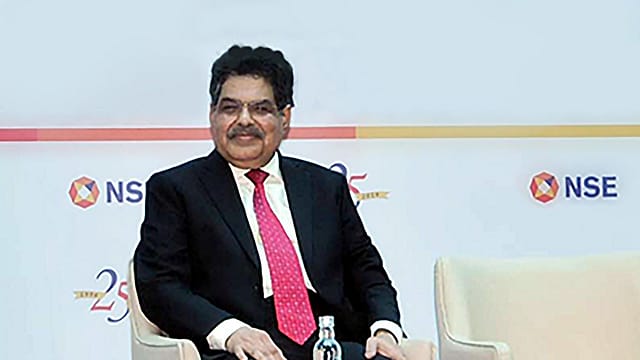Mutual funds shouldn’t behave like banks: SEBI chairman
ADVERTISEMENT

Regulators are not known to mince their words. And Ajay Tyagi, chairman of markets regulator Securities and Exchange Board of India (SEBI), has time and again shown that.
For example on Tuesday, while addressing members of the Association of Mutual Funds in India (AMFI), at their 25th annual general meeting, he pointed out that since protecting the interests of investors is the primary duty of mutual funds, all decisions that the funds take on their behalf should be made keeping in mind the best interests of investors.
He said that debt mutual funds must remember at all times that there is a difference between ‘investing’ and ‘lending’. “Mutual funds are not banks and shouldn’t attempt to behave like one,” Tyagi said.
Unlike banks there are neither capital adequacy requirements for mutual funds nor do they have the ‘lender of last resort’ comfort as banks have from the Reserve Bank of India (RBI), he said. “The true reflection of their portfolio in its net asset value on a daily basis is the cornerstone of transparency and investors’ trust.”
Earlier in his address, Tyagi talked about the recent challenges faced by the mutual funds (MF) industry, especially on the debt MFs side. He reminded AMFI members that in March-April, significant risk aversion and subsequent illiquidity was observed in the bond market, especially for ‘AA’ and below rated papers.
“This created significant challenges in the form of redemption pressures being faced by debt mutual funds, on account of not only normal year-end redemptions, but Covid-19-related redemption pressures,” Tyagi said.
During the period of increased illiquidity in the corporate bond market, Tyagi said that the markets regulator received requests from debt MFs to permit them to include government securities (G-secs) and treasury bills (T-Bills) in the core asset allocation of credit risk funds, corporate debt funds, and banking and PSU debt funds, to meet the heightened redemption requests.
While this was allowed as a temporary measure, Tyagi revealed that the SEBI was facilitating setting up a panel of experts to frame a stress-testing methodology, encompassing liquidity, credit and market risks, for all open-ended debt oriented MF schemes; and to design a framework to determine the minimum asset allocation required in liquid assets, taking into account the nature of a scheme’s assets, type of investors, outcome of stress testing, and minimum redemption requirement.
Tyagi admitted that in India, the repo market for corporate bonds was yet to take off. “SEBI is deliberating on having a limited purpose central clearing corporation for guaranteed settlement of tri-party repo trades in all investment grade corporate bonds, including those below ‘AAA’ rated, to boost repo trading in corporate bonds,” he said.
Also on the cards is a backstop facility for debt MFs. This would entail setting up an entity which can trade in relatively illiquid investment-grade corporate bonds and be readily available in times of stress to buy such bonds from various market participants in the secondary market, he said.
This, in Tyagi’s view, may instil greater confidence in market participants for corporate bonds, especially in below-AAA investment grade bonds. “SEBI is examining the setting up of such a backstop facility in consultation with various stakeholders,” Tyagi said.
Tyagi was also vocal about the fact that 46 MFs have more than 1,700 schemes. And, SEBI, in consultation with the MF industry, had done a mammoth exercise in 2017 and come out 36 categories. “Improper categorisation of schemes will only lead to confusion amongst the investors apart from the possibilities of mis-selling,” he said.
On Covid-19, Tyagi said that the world today is passing through a phase of unprecedented uncertainty. “The worst part is that the uncertainty continues and no one knows for how long it would last.”